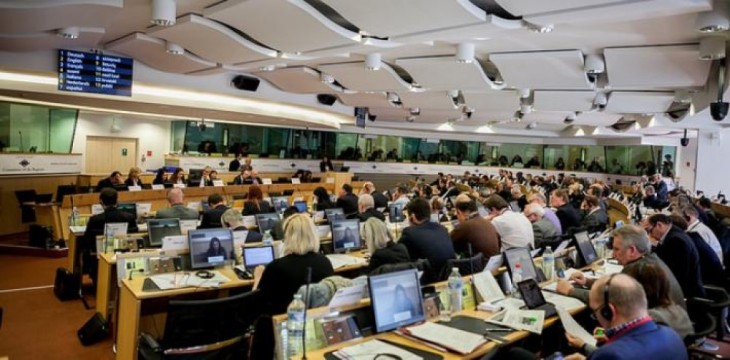European Committee of the Regions: An unsatisfactory level of implementation of EU environmental law

At the regular meeting of CoR’s commission for energy, environment and climate (ENVE) on 24.02.2016, the main question was how can EU law be better implemented for the safeguard of our environment and what mechanisms and tools can be developed to improve administrative practices in monitoring and reporting environmental law compliance in Europe. The answer to these questions were given by the Andres Jaadla (ET/ALDE), member of Rakvere City Council, who is the rapporteur of ‘EU environment law: improving reporting and compliance’, a European Committee of the Regions Outlook Opinion.
Today, there is an unsatisfactory level of implementation of environmental law in Europe with a lack of coherence and consistency in reporting compliance assurance requirements across EU environmental law. EU’s assembly of local and regional authorities has put forward a set of measures to improve environmental reporting, monitoring and compliance for the benefit of local and regional authorities (LRAs), which are responsible for executing 70% of environmental legislation.
“We first need to undertake a comprehensive inventory of environmental monitoring and reporting obligations and an assessment of administrative costs endured by cities and regions”, recommended Andres Jaadla. “We suggest setting up an experts group to advice on how to improve the quality and coherence of the EU environmental acquis and to strengthen IMPEL, the EU Network for the Implementation and Enforcement of Environmental Law,” added Rakvere’s city counsellor.
Among CoR’s proposals is to automatize and digitalize reporting tools, to establish guidance documents and ‘implementation scorecards” and to further promote “Structured Implementation and Information Frameworks”. The CoR highlights specific good examples in environmental monitoring and reporting such as WISE, an EU data collection and information service on water.
“Spatial information and earth observation tools such as GMES, GEOSS and Eyeon Earth should be further developed for streamlining environmental monitoring and reporting. INSPIRE is a key e-Government tool that can make compliance assurance and enforcement of EU environmental legislation more efficient”, added Andres Jaadla.
CoR’s input has been requested by the European Commission in the framework of the REFIT initiative for better EU regulation, as EC fitness check on streamlining environmental monitoring and reporting requirements is to be delivered in 2017.
Further information: http://cor.europa.eu/en/news/Pages/environmental-law-in-Europe-how-to-make-it-work.aspx








